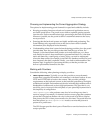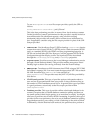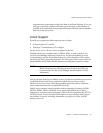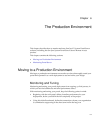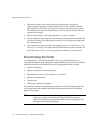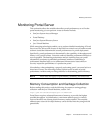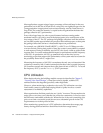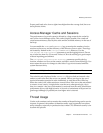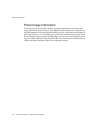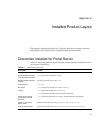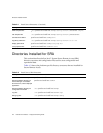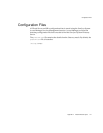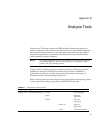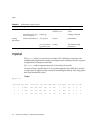
Monitoring Portal Server
Chapter 6 The Production Environment 137
Expect peak loads to be four to eight times higher than the average load, but over
short periods of time.
Access Manager Cache and Sessions
The performance of a portal system is affected to a large extent by the cache hit
ratio of the Access Manager cache. This cache is highly tunable, but a trade-off
exists between memory used by this cache and the available memory in the rest of
the heap.
You can enable the
amSSO and amSDKStats logs to monitor the number of active
sessions on the server and the efficiency of the Directory Server cache. These logs
are located by default in the
/var/opt/SUNWam/debug directory. Use the
com.iplanet.am.stats.interval parameter to set the logging interval. Do not
use a value less than five (5) seconds. Values of 30 to 60 seconds give good output
without impacting performance.
The
com.iplanet.services.stats.directory parameter specifies the log
location, whether to a file or to the console, and also is used to turn off the logs. You
must restart the server for changes to take effect. Logs are not created until the
system detects activity.
The cache hit ratio displayed in the
amSDKStats file gives both an internal value
and an overall value since the server was started. Once a user logs in, the user’s
session information remains in cache indefinitely or until the cache is filled up.
When the cache is full, oldest entries are removed first. If the server has not needed
to remove a user’s entry, it might be the case that on a subsequent login—days
later, for example—the user’s information is retrieved from the cache. Much better
performance occurs with high hit ratios. A hit ratio of a minimum of 80 percent is a
good target although (if possible) an even higher ratio is desired.
Thread Usage
Use the web container tools to monitor the number of threads being used to service
requests. In general, the number of threads actually used is generally lower than
many estimates, especially in production sites where CPU utilization usually is far
less than 100 percent.
NOTE Multiple web container instances write logs to the same file.



